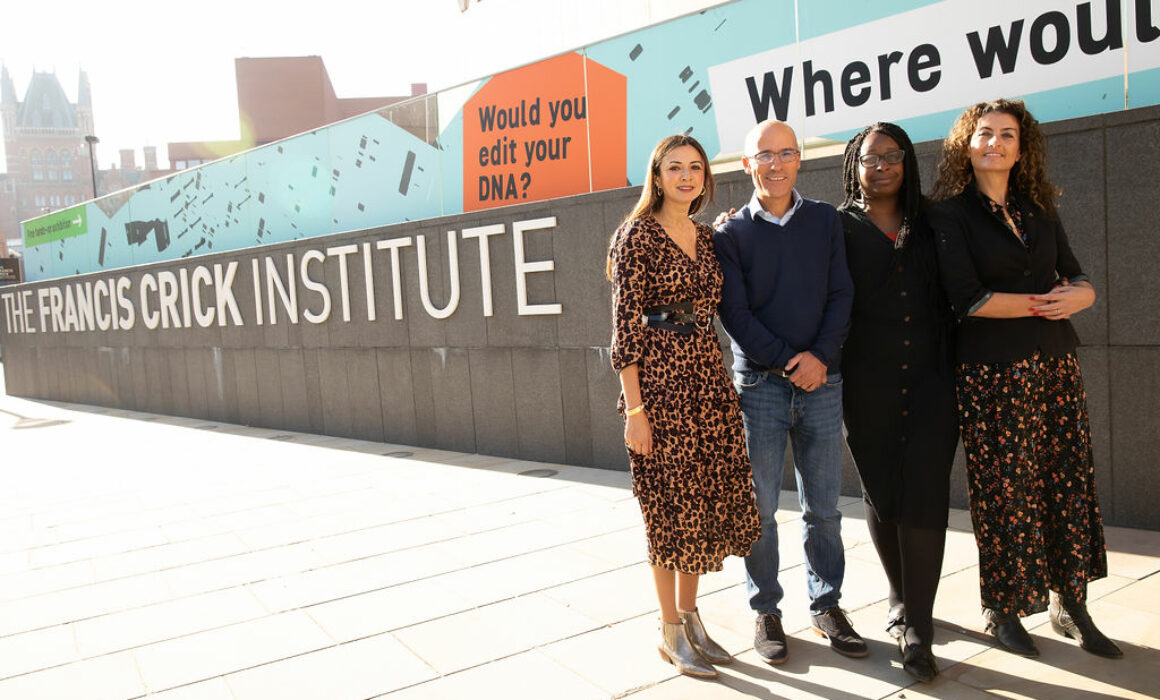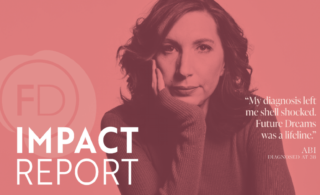
We are proud to announce our backing of two ground-breaking breast cancer research projects, kicking off our commitment to £1 million of vital research over the next five years. The projects will enable better understanding of the disease from early diagnosis to treatment of secondary breast cancer, when the disease has spread and is treatable but no longer curable.
One of the research projects is with Prof Charles Swanton, supporting his work studying metastatic triple negative breast cancer at the world-famous Francis Crick Institute. The project is a collaboration between the Francis Crick Institute, UCL (London), UNICANCER (Paris), Institut Curie (Paris) and Gustave Roussy (Villejuif.) It will help transform the understanding of cancer evolution and help develop practical steps towards an era of precision medicine.
Breast cancer is the most commonly diagnosed cancer and the main cause of cancer-related mortality in women worldwide, with Triple Negative Breast Cancer accounting for 15-20% of all breast cancer cases. Despite advances in our knowledge of the underlying genetic alterations in breast cancer and improvements in treatment, 20% to 30% of patients with early breast cancers still relapse with distant metastatic disease.
Prof Swanton and his collaborators work on 575 tumour samples collected from 250 triple negative breast cancer patients who have been diagnosed with primary and recurrent breast cancer and included in the TRACERX-TNBC and SCANDARE studies.
The TRACERX-TNBC (tracking triple negative breast cancer evolution through therapy) project is using cutting edge analytical techniques to investigate how tumours evolve, metastasise and develop resistance. Tumours are heterogenous or have regional diversity, despite originating from the same tumour. In the TRACERX-TNBC/SCANDARE trials, multiple biopsies were taken over various timepoints and analysed to see how the cancer evolved. The next step is to see the differences between the original tumours from patients who relapse and compare them to another panel of tumours from patients who do not relapse. Using advanced analytical techniques, the changes within the cells and also outside the cells will be examined. Understanding the diversity of the tumour cells will allow therapeutic manipulation and hopefully new treatments.
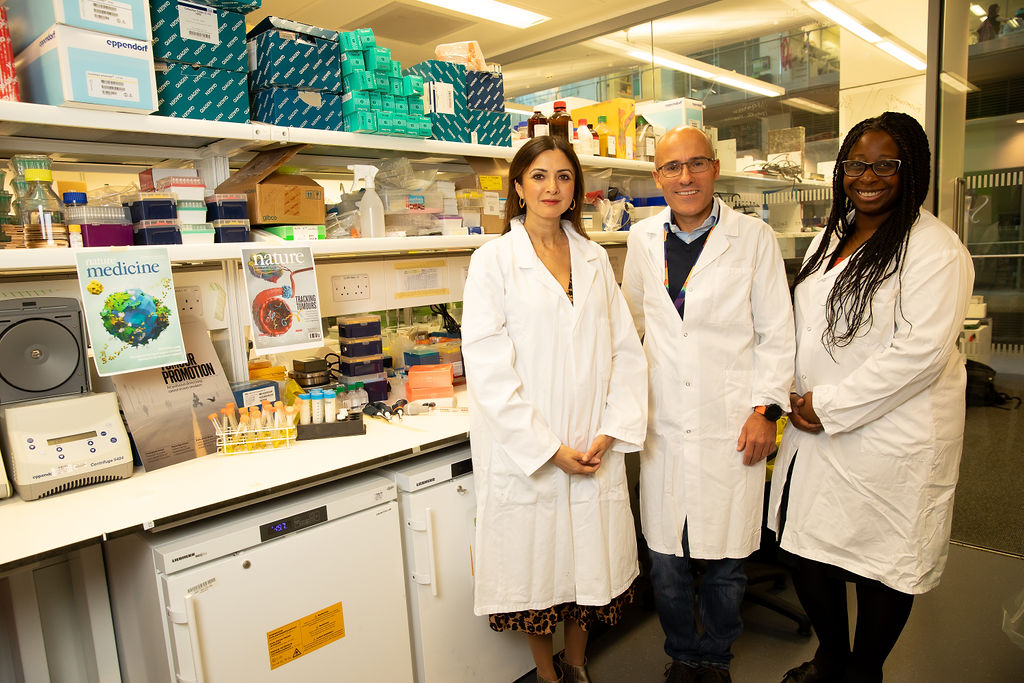
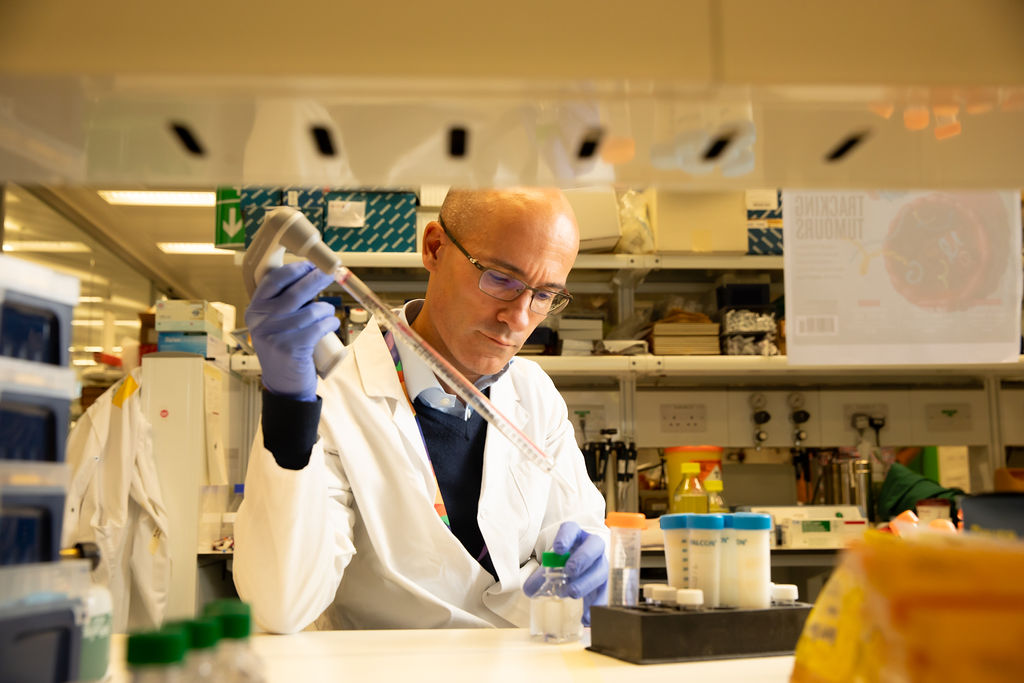
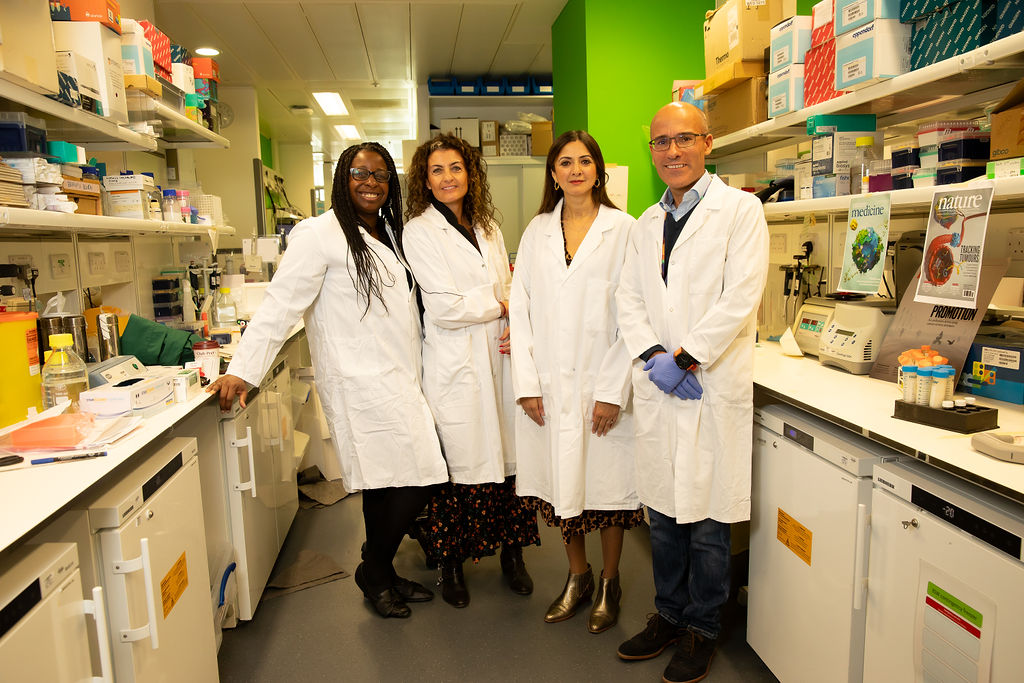
Prof Swanton, who was awarded the 2024 Jeantet-Collen Prize for Translational Medicine for his research in cancer genetics and evolution, said: ”We are beginning to generate an in-depth portrait of how triple negative breast cancers develop and metastasise and we are starting to discover key alterations responsible for relapse.”
Future Dreams trustee and consultant medical oncologist, Dr Fharat Raja said: “It is incredibly exciting to be supporting this immensely important work that enhances our understanding of the evolution of cancer which will eventually allow us to exploit the findings within the tumours for better treatments.”
Running alongside this project, Future Dreams is also funding a PhD student at University of Cambridge to understand if AI screening could identify women who are more at risk of developing breast cancer. Prof Fiona Gilbert, from the Radiology department of University of Cambridge stated: “We are thrilled that Future Dreams is funding a PhD studentship and some senior clinical research time. The purpose of the grant is to assess different artificial intelligence tools which use information from mammograms to predict which women will develop breast cancer over the next five years. This important work will help inform the UK screening programme on whether AI tools are ready to be adopted into clinical practice.”
“At the moment all women are treated in the same way and offered three yearly screening. We are really optimistic that this research will enable us to use AI to tailor screening to identify which women will benefit from more frequent mammograms or additional supplemental imaging to find cancers earlier. In time we may be able to adopt protocols that would also better manage patients considered high risk due to dense breasts or a family history of cancer. “
Future Dreams trustee and consultant breast and oncoplastic surgeon, Miss Joanna Franks, said: “Being able to use AI in breast screening will be a tremendous breakthrough enabling quicker assessments, earlier diagnosis and help all women including those who are at greater risk of developing breast cancer. It will transform the UK screening programme.” Future Dreams’ Sam Jacobs said: “We are proud and excited to be funding such excellent and much-needed research projects led by scientists who will make a real difference to the breast cancer community.”
To find out more about our previously funded research projects with Future Dreams, CLICK HERE.
Share

Support awareness research
Donate to those touched by BREAST cancer
Sylvie and Danielle began Future Dreams with just £100 in 2008. They believed nobody should face breast cancer alone. Their legacy lives on in Future Dreams House. We couldn’t continue to fund support services for those touched by breast cancer, raise awareness of breast cancer and promote early diagnosis and advance research into secondary breast cancer without your help. Please consider partnering with us or making a donation.
